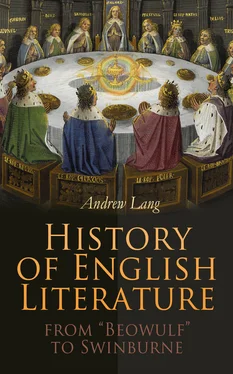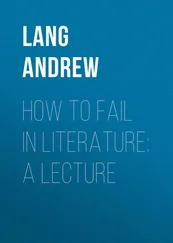He wrote many pamphlets still in manuscript; the "Repressor" is of 1455, and is a most remarkable book in all ways. Pecock became vastly unpopular, because he was too clever, and, in his dislike of religious persecution, as well as in the nature of his arguments, was in advance, not only of his own age, but of the age of the Reformation. He was thought to give far too high authority to reason, and to the natural faculties of man in the way of developing unrevealed morality and unrevealed religion. "No virtue or governance or truth into which the judgment of man's reason may sufficiently ascend or come to, to find, learn, and know it without revelation from God, is grounded on Holy Scripture."
This conclusion arrives at the end of a sentence of thirty lines, a fair example of Pecock's logical and legal style, by him first used in English. It is not possible, here, to discuss Pecock's ideas, which are concerned with questions that still divide the Church and the world, Anglicans, Catholics, Nonconformists, and Agnostics. The "Repressor" has been described as "the earliest piece of good philosophical disquisition of which our English prose literature can boast"; it may still be read with interest, especially by students of the Reformation. Pecock was opposed to the unjust and brutal war of conquest and of disaster waged by England in France.
In 1450 he became Bishop of Chichester, and shared the unpopularity of the Duke of Suffolk, who was blamed for the disasters in France. His "Book of Faith" (1456) practically abandoned the infallibility of the Church in 1457; he was as unpopular with the clergy as with the mob; twenty-four doctors reported unfavourably on his works: he was a defender of "drowsy reason" and of "unrevealed morality": he was found guilty of heresies which were no heresies, and, with no choice except that of being burned alive, he signed a confession and abjuration of sins which he had not committed: he was consigned to close confinement in the Abbey of Thorney, was deprived of his bishopric—and of writing materials—and died obscurely.
The source of his misfortunes was this: he was not only clever but he knew it, and wrote that whatsoever man did not agree with an argument of his "is duller than any man ought to be". As few agreed, most were dull, and they did not like to be told it.
John Capgrave (1393-1464), a Norfolk priest, and Augustinian canon, author of many scriptural commentaries and of a work on "Illustrious Henrys," wrote in English a "Chronicle of England," beginning with the Creation and ending in 1417. Capgrave reminds us that Adam "was made on a Friday, in the field of Damascus"; the date was unlucky. He is nearly as brief as the Anglo-Saxon "Chronicle," his account of Agincourt is no longer than the "Chronicle's" description of Hastings. Here is a sample of his style. "In the same yere III beggeres stole III childyr at Lenne, and of on thei put oute his eyne, the othir they broke his bak, and the thirde thei cut off his handis and his feet, that men schuld of pite give hem good. Long aftir the fadir of on of hem, wheech was a marchaund, cam to London, and the child knew him and cried loude 'This is my fadir.' The fadir took his child fro the beggeris and mad hem to be arrested. The childirn told alle the processe, and the beggeris were hangen, ful well worthy." Such is Capgrave's work, described by himself as "a short remembrance of old stories."
Later by two generations, John Bourchier, Lord Berners, was born about the time of Capgrave's death, and while Malory was writing his "Morte d'Arthur" (born 1467, died 1533). As Captain of Calais, the last spot of land held by England in France, Lord Berners had leisure enough, which he spent in translating Froissart, and the French romance of "Huon of Bordeaux" and Oberon the fairy king, "Arthur of Little Britain," and Guevara's Spanish "Dial for Princes," with the "Carcel de Amor" and the "Libro Aureo," books which more or less anticipate the antitheses of "Euphuism". In his translation of Froissart, Berners follows the style of the original, his language is much akin to that of Malory: in his prefaces he is more rhetorical and "aureate," and has a habit, like Sir Robert Hazlewood in "Guy Mannering," of treble-shotting his verbs. "Histories show, open, manifest, and declare to the reader by example of old antiquity, what we should inquire, desire, and follow, and also what we should eschew, avoid, and utterly fly." This mannerism is tedious, but the translation itself is in admirably simple and expressive English.
Table of Contents
Much the most important novelty in the literature of this period is the "Morte d'Arthur," finished by the author, Sir Thomas Malory or Maleor, in 1469, and published in 1485. Malory is believed to have been the Squire of Newbold Revell in Warwickshire, born about 1400 (?) and a retainer of that Richard Beauchamp, Earl of Warwick, who was called "the Father of Courtesy" by the Emperor Sigismund, and was the cruel jailer of Jeanne d'Arc at Rouen (1430-1431), where she was burned. Malory appears to have joined the Lancastrian party in the Wars of the Roses; he, or a man of his name, was left out of a general amnesty granted by Edward IV, in 1468; he may have fled to Bruges and there made the acquaintance of Caxton, and Caxton, in his Preface to the "Morte," says that the book is printed "after a copy unto me delivered which Sir Thomas Malory did take out of certain books of French, and reduced it into English". Malory died in England, and was buried in the Grey Friars, near Newgate, in 1471.
As we have seen already, the true first sources of the immense body of Arthurian romance are obscure: the fountain-head is certainly Celtic, but the affluents are mainly French—without France the legend would have been but a small thing. Malory constantly refers to "the French book" for his statements, to what book he does not say, but the learned industry of Dr. Sommer has detected that, for the youth of Arthur, Malory used French romances of Merlin the Seer; used French authorities for the tales of Sir Tristram and Lancelot, and also freely employed an English metrical romance, "Morte Arthur," attributed to the mysterious Scot, Huchown. There are other sources, and Malory treats his authorities with much freedom, omitting, adding, and introducing confusions. His great romance has a definite beginning; it has a middle in the fatal revival of Arthurian chivalry in the search for the Holy Grail; and thence turns towards its end with the falling of Lancelot to his old sinful love of Guinevere, wife of Arthur, the decadence, the rebellion of Mordred, the passing of Arthur, and the penitence of Lancelot and Guinevere.
Malory's book may be called a work of true genius, so simple yet so noble is the prose style; so fine, loyal and chivalrous the temper, while even the confusions add to the element of mystery and to the expectation and curiosity of the reader. Malory purges away the stupid monkish fables about the birth of Merlin by a machination of a devil: he does not linger over the long dull fables of Arthur's wars against the Anglo-Saxon invaders; he gathers the flower of the chivalry of the fourteenth century, while true love is his theme, with no palliation of the guilt of sinful love. His Lancelot deserves the Douglas motto of "tender and true," though
His honour rooted in dishonour stood,
And faith unfaithful kept him falsely true.
Hence comes the inevitable tragedy, the greatest in romance.
"Herein," says Caxton, rising to the height of Malory's own style, men "shall find many joyous and pleasant histories, and noble and renowned acts of humanity, gentleness, and chivalry. For herein may be seen noble chivalry, courtesy, humanity, friendliness, hardiness, love, friendship, cowardice, murder, hate, goodness, and sin. Do after the good, and leave the evil, and it shall bring you to good fame and renommee."
Читать дальше












